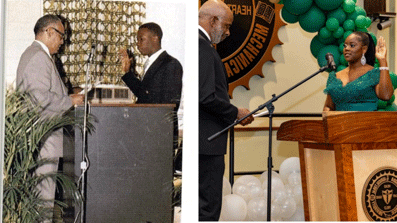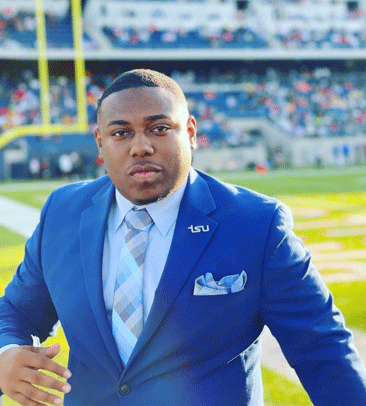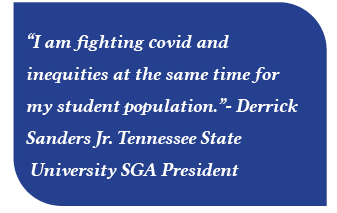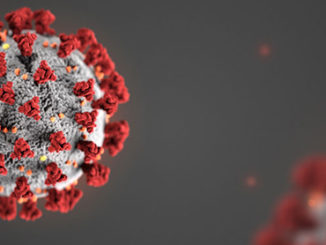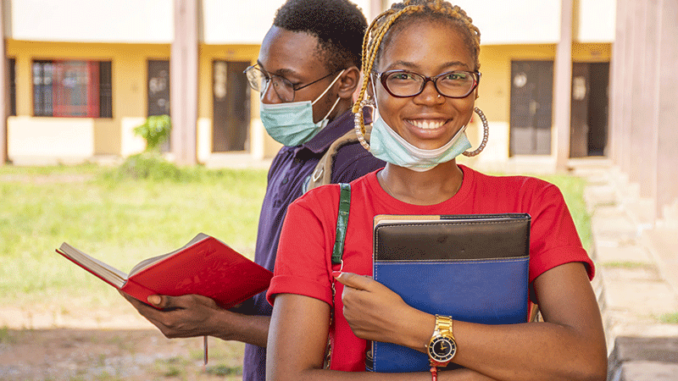
By Carrington McKenzie Whigham
I remember vowing to protect and defend our student body, but not even the oldest faculty member could have possibly warned me about the approach of a global health crisis.
Student government association (SGA) presidents across the country have been working unanimously to keep our students safe. Who would have thought that the physical well-being of over 7,000 students would ever be on a 20- year-old’s agenda?
However, even with unforeseen circumstances, we are still expected to fulfill our duties during an unimaginable time, with a disease that affected us in more ways than we ever imagined.
I remember attending Florida A&M University’s homecoming as a high schooler, which was then my father’s alma mater, and which is now my university.
Instantly, when I stepped foot on campus, all of his annoying stories became a little, not so annoying. My father was SGA President during FAMU’s centennial year of success, so I promise you, as soon as I left homecoming with the confidence of knowing I wanted to be a rattler, we began to prepare for my collegiate success. However, even with all the in-advance preparation for the future, it still wasn’t enough to predict a pandemic would ruin everything I hoped for.
Unlike many American “traditions,” covid plagued every community regardless of race, socioeconomic status, sexual orientation, or even ethnocentric biases that were thought to protect the “elite” culture. COVID-19 has left HBCUs in detrimental situations that exposed the nation’s faults in ways our young professional minds never thought we would experience.
Derrick Sanders Jr. Tennessee State University’s SGA President expresses how covid not only affected the health of their students but continues to affect the student success.
“We took a double hit. Not only does the state owe our university about $544 million dollars,” Sanders revealed. “But funding that is needed to produce students’ success is extremely limited.”
Sanders’ university, like my HBCU, was already behind in funding on the state and national level, so when the pandemic hit, it put us in deeper holes that truly exposed the inequities. What was already a low-staffed HBCU, has now become even lower due to budget cuts. Budget cuts, means we have to accommodate in areas that require the elimination of staff. Fewer staff means there has to be fewer students. The decrease of students is the outcome of less money because of lower enrollment. Lower enrollment has a direct impact with decrease of student fees because of the activity and services fee that each student has to pay, which goes into a pot of money for student activities. This decrease has affected university operating budgets, attendance, enrollment, and increased student homelessness populations.
HBCU’s who already were three steps behind, now have to work harder to get back to where they left off before covid.
Tennessee State University President, Dr. Glenda Glover, did an initiative where the university raised $1 million in one month, because of the urgency of funding that was needed for their students’ success.
This effort is a truly small example of the important necessity for HBCUs to get creative in order to survive post-covid.
I have been a part of a $1 million initiative to help get students vaccinated through incentives such as free MacBooks, laptops, $100 gift cards, and college students’ best friend- free food. My university has been doing everything in its power to keep our students safe.
This summer, I also worked with Douglas Emhoff, the Second Gentleman of the United States, on Joe Biden and Kamala Harris’ initiative to get 70% of America vaccinated by July. I had the privilege of representing college students across the nation at this roundtable, to discuss COVID-19 strategies and facts.
According to Our World in Data, 377 million Americans have been vaccinated with at least the first shot, and 177 million people are fully vaccinated. More specifically, Kaiser Family Foundation shares that as of Sept. 9, 2021, only 43% of the black community have been vaccinated. Of course, taking the historic relationship, black people have with vaccinations into consideration, I can’t help but wonder if these resources are being afforded to every black community.
I can confidently say that having a big responsibility during a pandemic has called for a lot of creativity and has allowed me and my fellow HBCU peers to wake up. This pandemic has produced opportunities that probably would not be possible while at the same time robbing and limiting us from opportunities and experiences, we thought we would otherwise have.
Even though a global health crisis tried to throw us off course, despite it all, we still survive, still hold our heads up every day, still put our best foot forward, and still do what’s best for our universities. Black people have always excelled above disproportionate situations and will continue to.
I am a black HBCU student government president at an HBCU, during a pandemic and this experience has changed my life forever.
About the Author
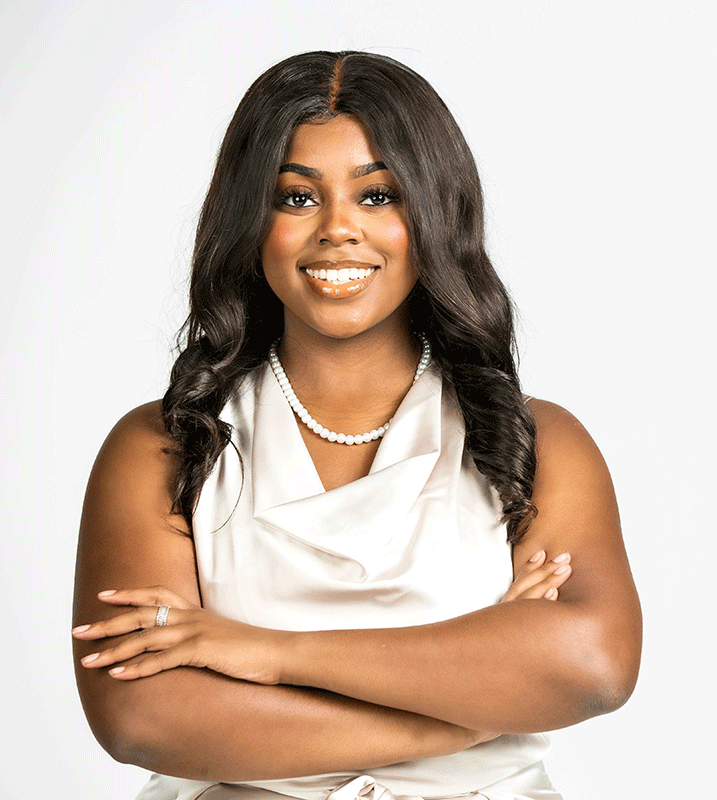
Carrington McKenzie Whigham is a fourth-year Broadcast Journalism major and Theater minor from the city where things are indeed “bigger and better”, Dallas, Texas. Carrington humbly serves as the Student Body President for Florida A&M University Student Government Association. She is a third-generation rattler and the daughter of Centennial SGA president, Andrew Whigham III, and Dr. Deardra Hayes- Whigham. She is also a proud member of the Original Beta Alpha Chapter of Alpha Kappa Alpha Sorority Inc, where she serves as a 2021 International Leadership Fellow. Though she is heavily involved on campus, Carrington continues to excel academically having been selected as one of Texas Senator Royce West interns, through the Dr. Emmett J. Conrad Leadership Program. Interning with Ut Southwestern Academic Medical Center in the office of Communications, Marketing, and Public Affairs and in the Corporate Compliance Office at AT&T, where she worked with the Ethics and Policy Governance team.




